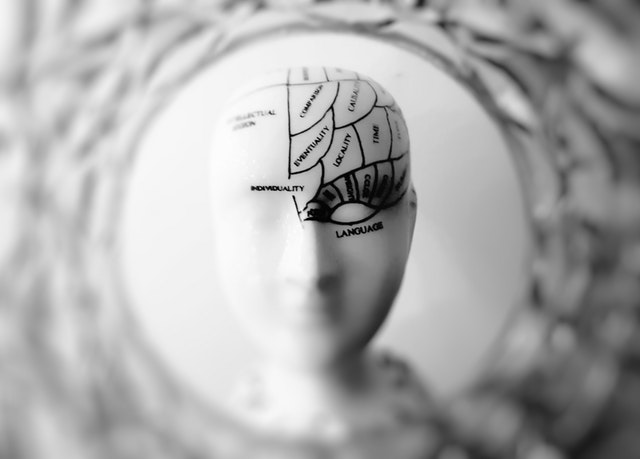The brain is an amazing organ – perhaps the most amazing organ contained within the entire human body. It is faster and more powerful than any supercomputer on the planet and can change in structure in order to better serve the rest of your body’s vital functioning.
It is constantly operating, even while you sleep, and enables you to learn a variety of new tasks while also retaining old accomplishments and milestones. While the potential of the brain is wildly expansive, it’s not indestructible.
The damage that can be done through substance addiction is well documented and thoroughly devastating. In particular, meth addiction has been shown to destroy the brain and its correlating functions in a variety of ways, most of which are long-term and irreversible.
How Does Meth Damage the Brain?
Any and all types of meth abuse have damaging effects on the brain. This is due to the brain’s ability to become accustomed to the chemical effects of the substance and how it forces the brain to adjust and restructure in order to compensate for its damaging impact.
From structural deterioration to inducing hallucinations, the desolation that meth use causes is vast and remorseless. Here are a few examples of how meth use causes the brain to change:
Learning Impairment
Meth can cause long-lasting cognitive damage, compromising the user’s ability to learn, maintain and complete basic verbal tasks.
Delusions and Hallucinations
Meth can make people think they hear voices, see things that aren’t there and even feel as if their skin is covered in invisible parasites.
Obsessive Behaviors
Meth users can become obsessed with one task for hours at a time. This is due to the fact that meth disrupts the brain’s inhibitory control, prohibiting a user from stopping repetitive or unnecessary actions.
Uncontrollable Movement
Meth can cause involuntary facial and body movement, including twitching and repetitive ticks.
Because of meth’s ability to convince the brain that it is the only way to make the user feel good, meth completely hooks its users faster than almost any other illegal drug.
While this may seem incomprehensible to someone not struggling with meth addiction, the severity of a methamphetamine use disorder is a debilitating and utterly caustic disease.1
Meth and Brain Damage: 3 Types of Brain Damage Caused by Meth Use
While the effects of meth on the brain are extensive, the structural damage the substance
causes is extraordinarily negative. Long-term use has been shown to destroy the brain in three specific ways:
1. It Rewires the Brain’s Reward System
Meth addiction destroys the brain’s pleasure center, or the regions of the brain responsible for causing you to naturally feel good. This structural impact causes an increase in the level of cytokines in the brain, which is a class of chemicals responsible for the development of new synapses between brain cells.
The more meth is used, the more cytokines are developed, creating extra pathways between neurons and vastly expanding the users drug cravings in order to satisfy all the new neural activities.
2. It Causes Acute Neurotransmitter Changes
Sustained meth use directly alters the systems responsible for delivering messages throughout the brain. Since these systems are largely responsible for a person’s mood, chronic use can lead to excessive emotionality, including anxiety, irritability, depression, insomnia and rage.
3. It Causes Brain Cell Death
Meth addiction is known to cause cell death in the parts of the brain associated with self-control. Damage in these areas is indicated by severe psychiatric symptoms, such as dementia, psychosis and schizophrenia.
While this type of structural damage is typically seen in later-stage addiction, those that continue use for an extended amount of time do such damage to their brain that the ramifications are often irreversible, leaving them permanently brain damaged.2
While some of this symptomatology has been shown to be reversible after extended substance abstinence, the more severe structural damage can stay with an addict up to a year and a half after their full recovery, and some has been shown to be permanent.
When dealing with brain functioning and the potential of dealing with life-long cognitive
impairment, the decision to continue a meth addiction is truly akin to gambling with your life at stake.
You Can Become the Clean Individual God Made You to Be
The human brain is an amazing work of God. It allows our bodies to function harmoniously and in unison. From our ever-beating heart to our oxygen-processing lungs, all of the vital and life-sustaining responsibilities of our bodies are orchestrated by our brains.
Addiction is a disease that works to disrupt your homeostasis, knocking you out of rhythm and forcing you to search for peace in all the wrong places. Understanding that we all are God’s beautiful works of art – creations in His own image – reinforces our worth and the importance of maintaining our physical and mental health.
The body is the temple of God. Doing all that you can to respect its integrity and avoid its destruction is essential to achieving long-term hope and happiness.
Christian-Based Meth Addiction Treatment at Covenant Hills
You were meant for so much more than where your addiction has landed you. Your addiction can stop forever, and you can regain control over your life.
It all starts at Covenant Hills, where one of the most experienced and acclaimed addiction treatment teams in the country helps addicts quit all forms of drugs and alcohol, including methamphetamine.
Through a Christian-based model, our world-class meth addiction treatment program will empower you to reclaim your physical and mental well-being through emotional, nutritional, social, fitness and spiritual therapy components.
Above all, we will help you rebuild your relationship with God and walk with you every step of the way.
Learn more about our Christian-based meth addiction treatment program, or contact us for a free and confidential assessment.








